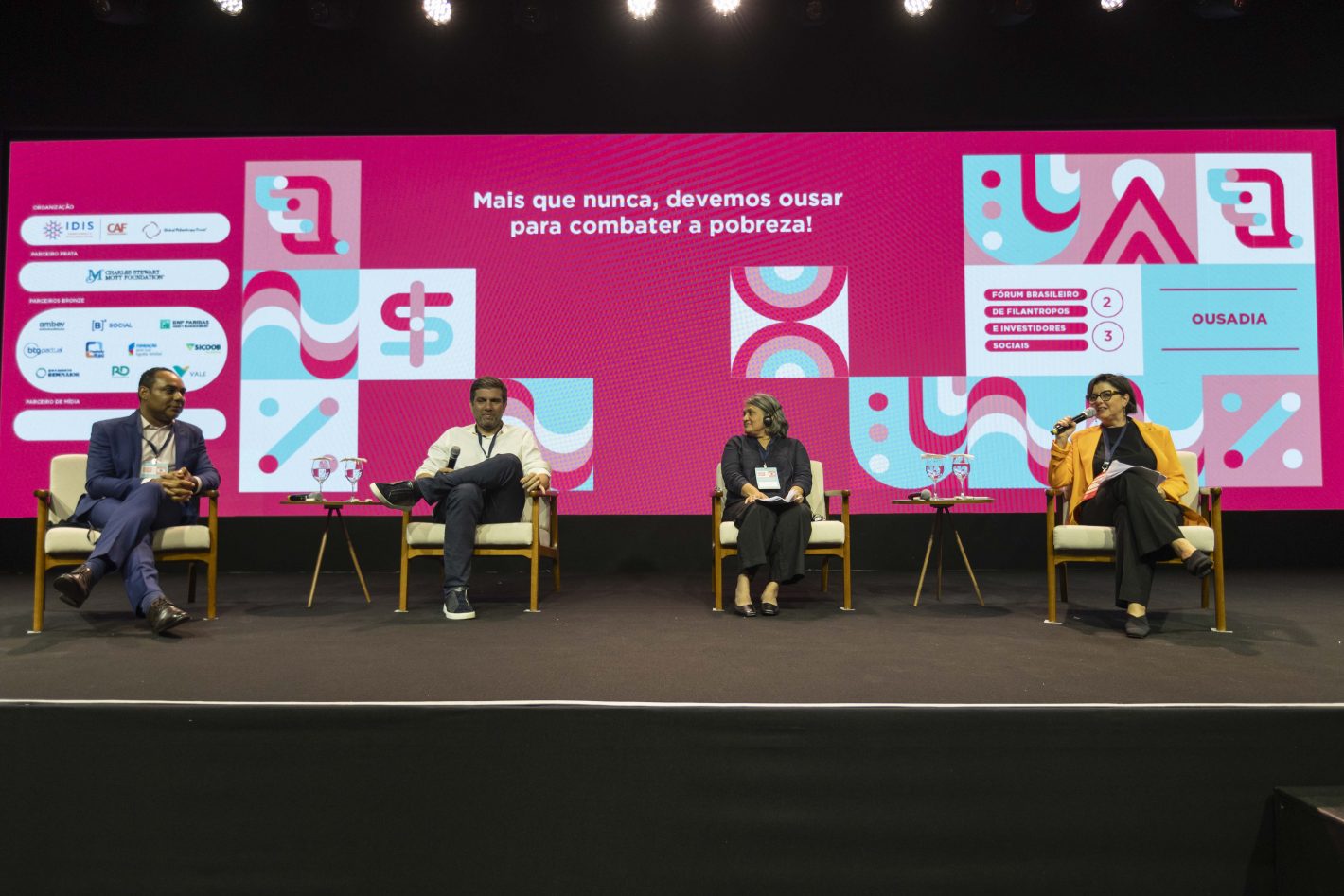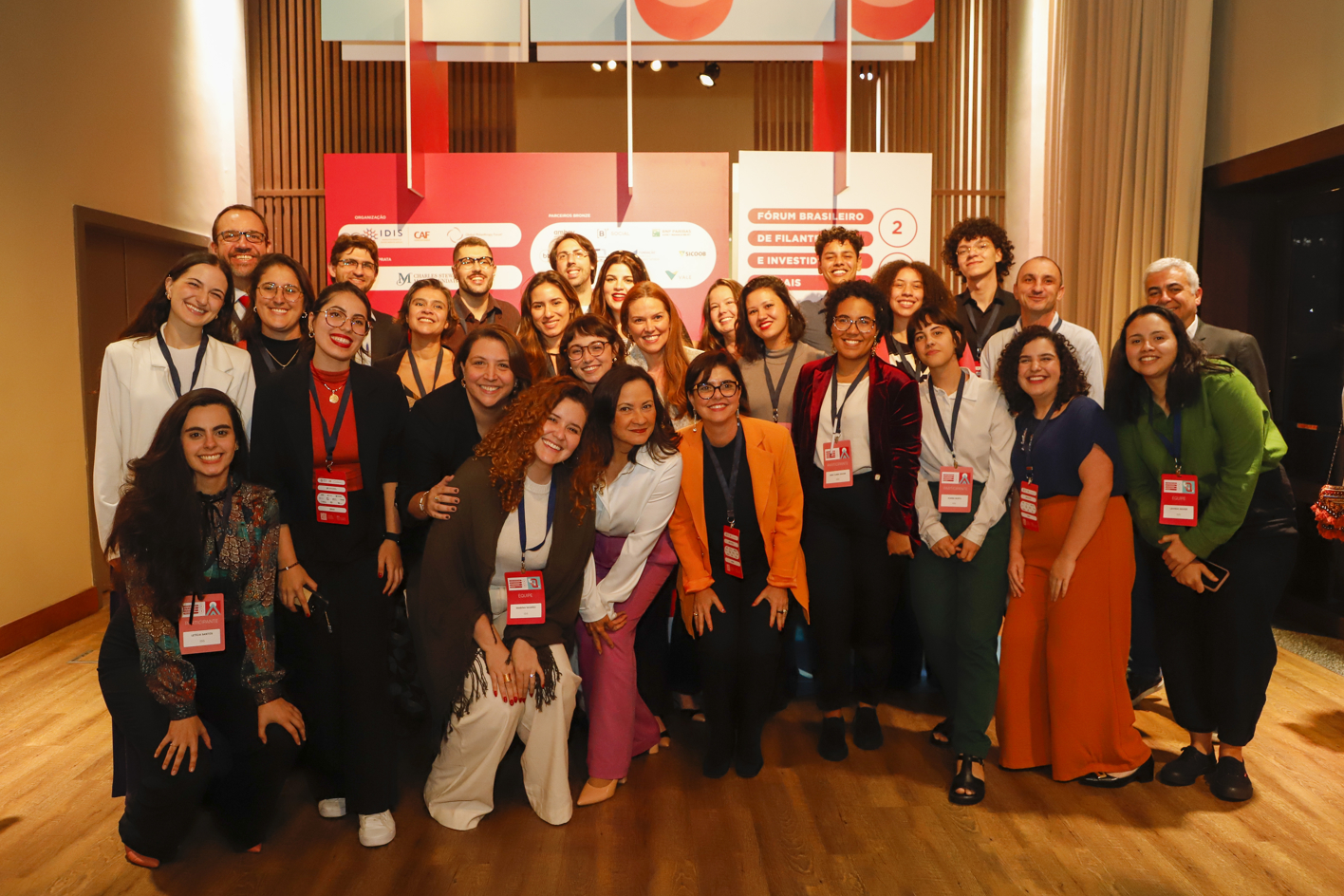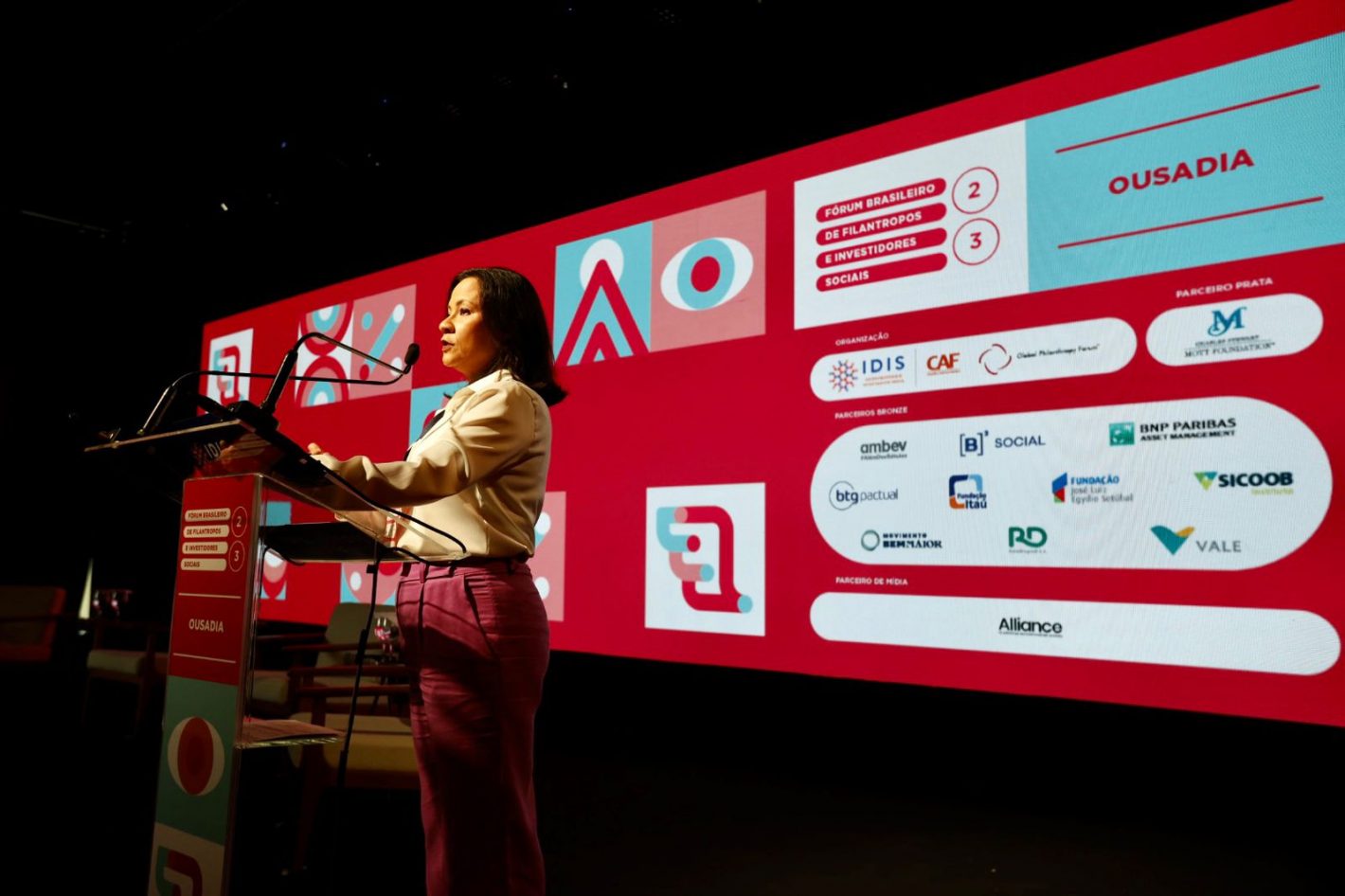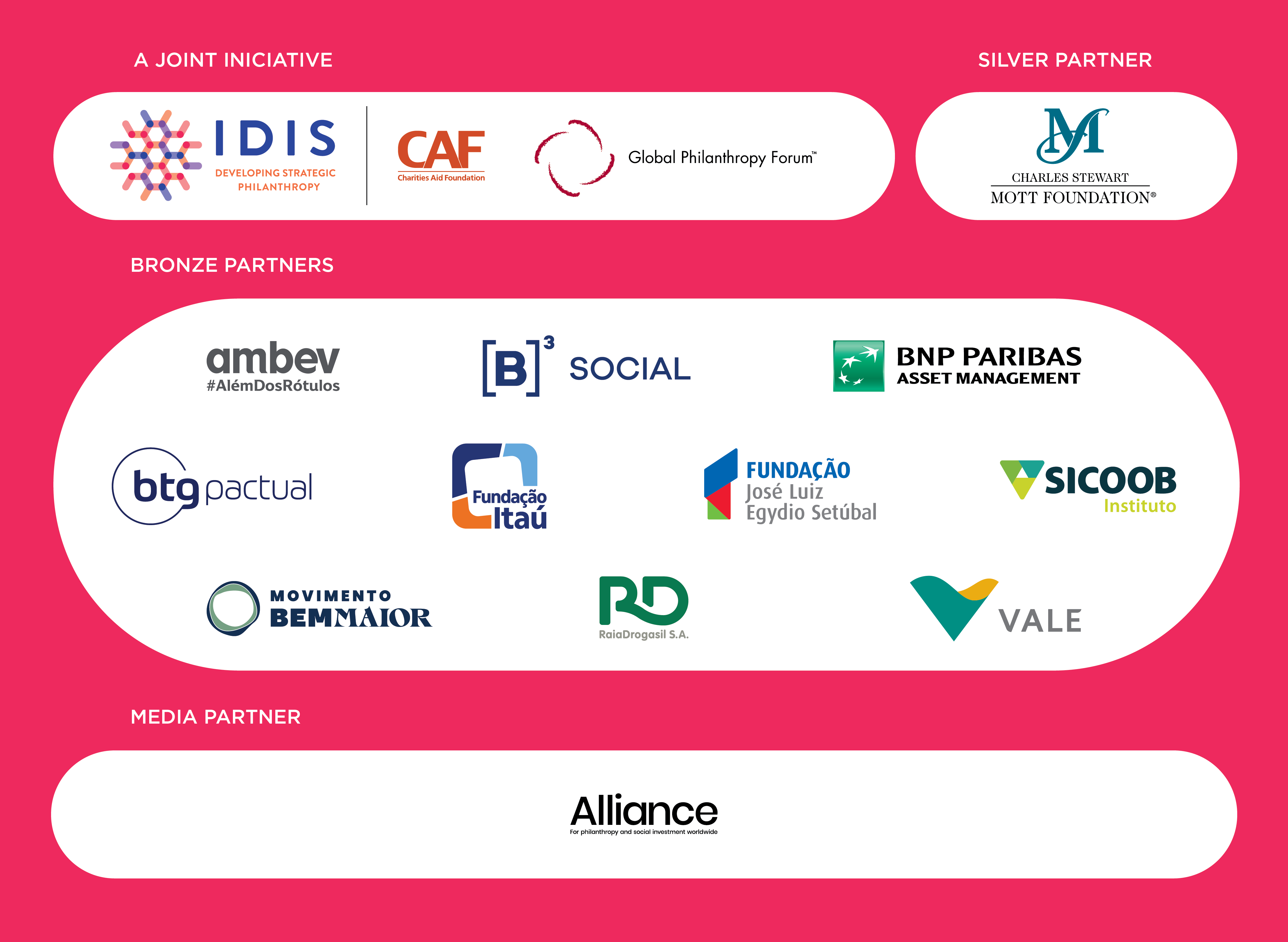By Joana Noffs | Project Analyst at IDIS
In 2021, Brazil surpassed the mark of 63 million people living in poverty, while 33 million people faced hunger, according to data from IBGE and a survey conducted by the Vox Populi Institute. At the same time, a portion corresponding to 50% of the Brazilian population held only 0.4% of the country’s wealth in financial and non-financial assets, according to data from the World Inequality Lab, also from 2021.
Inequality was exacerbated by the global pandemic as well. As evidenced in a report by Oxfam, between 2020 and 2022, the wealthiest 1% of the world concentrated nearly two-thirds of all wealth generated during that period, totaling approximately $42 trillion. Extreme economic inequality is also related to environmental, racial, and gender issues, highlighting the urgency of bold and creative actions to address the social and institutional vulnerabilities that afflict not only Brazil but also unfold into a concerning global reality.
The panel that concluded the Brazilian Philanthropy Forum 2023, titled “More than ever, boldness is needed to fight poverty!”, precisely addressed and discussed this challenging scenario. The lecture was moderated by IDIS CEO Paula Fabiani and featured guests Gilson Rodrigues, president of the G10 Favelas, Jean Jereissati, CEO of Ambev, and Nivedita Narain, CEO of the Charities Aid Foundation (CAF) India. The speakers presented possible paths and experiences that, driven by audacity, have proven to be significant in shaping a less unequal future.
Gilson Rodrigues began his participation in the panel by emphasizing the theme of audacity that guided the 2023 Forum. He highlighted that despite the recent increase in income inequality and deepening social disparities in the country, Brazilian favelas and peripheral areas should not be defined through a lens of scarcity, as this only exacerbates their marginalization.
To combat the stigma and foster a positive view of Brazilian favelas, Gilson is one of the voices that bring inspiring stories from contexts of adversity, demonstrating that favelas are also places of great knowledge. The G10 das favelas has underscored the importance of innovation and entrepreneurship to achieve necessary changes. He argues that for social investment to be effective in combating poverty, it must ensure the generation of opportunities while addressing issues such as hunger and lack of access to basic services.
“We genuinely believe that we need to create solutions based on this reality so that the favela can thrive and not solely depend on these [donations]. (…) We have been striving to create solutions that positively impact society and enable people to have work and income for their development, but also the choice of what they want to eat,” pointed out Gilson.
To achieve this, according to his leadership, social investment in favelas should always start with an approach that strengthens the autonomy of residents and their territories, thereby ensuring the financial sustainability of projects with the potential to transform structural inequalities.
Drawing from his experience in the private sector, Jean Jereissati, CEO of Ambev, highlighted in his speech the successful initiatives that the company has also been developing with the aim of contributing to these same challenges. Faced with the increasingly severe challenges posed by climate change, which also accelerate key factors in maintaining inequality, such as food scarcity, population displacement, and pollution, Ambev aims to make its production chain ‘carbon-neutral’ in the coming years and emphasizes the importance of consistency in mitigating negative environmental impacts. As Jereissati reminds us about the prospects for private social investment in the country, taking risks and daring is necessary for us to achieve urgently needed results.
“If you want to maintain the status quo, you can take fewer risks, but if you want to bring about change, you need to dare. In Brazil, we need to dare to achieve sustainable philanthropy,” emphasized the CEO of the company.
Beyond its commitment to sustainability, which, in the speaker’s view, should now be seen as an obligation, the beverage industry giant has sought to utilize a key characteristic of its activities to generate social transformation: its reach. Being present from ‘corn harvesting to the bartender at the bar,’ this characteristic allows Ambev to operate consistently in various fronts. With Bora, for example, the company has aimed to train entrepreneurs and connect them through its network, fostering productive inclusion. On the other hand, VOA is a volunteer program by the company that seeks to disseminate the knowledge and management expertise its employees possess for third-sector initiatives, promoting a more mature ecosystem of social impact. Finally, among the initiatives mentioned during the event, we also highlight AMA water, a social product of Ambev whose profits are reinvested to ensure access to clean drinking water for Brazilians in water-scarce regions.
Lastly, Nivedita Narain, CEO of CAF India, reminded us of the courage required to take strategic and planned actions in the pursuit of a more equitable society.
“When you talk about audacity, I think of courage,” shared Nivedita Narain.
She has been at the forefront of initiatives in her country that have placed organized civil society as a key player in addressing poverty and gender violence. Reflecting recent trends in philanthropy around the world, Narain explains that in the 21st century, there has been a shift in the course of private donations, which have become more directed towards governments, resulting in a decrease in the involvement of civil society organizations in this process. Echoing what Gilson mentioned, she emphasizes the importance of community organizations being heard and playing active roles in building coordinated policies between government, the third sector, and private investment.
During her presentation, the Indian leader provided a solid example of how such coordinated action can have its initial spark from local movements and scale up to successful public policy, based on an initiative in India that began by providing banking credit to economically vulnerable women in the 1990s, which led to the increased political representation of female leaders and a decrease in domestic violence. Importantly, Nivedita pointed out that when discussing the role of philanthropy in combating poverty in a broader framework, especially when addressing the Global South, we cannot forget to look at the issue through the lens of gender.
“We need a lot of courage for women; change requires courage, it doesn’t happen easily. The way change happens is when, in the community, women seek out and conquer that space, as it’s not given to us.”
Thus, Narain leaves us with the lesson of the need to consider factors like community participation and gender when reflecting on local development and in order to achieve the goals of the 2030 agenda.
Closing the panel, Paula Fabiani, CEO of IDIS, thanked the attendees and supporters of the event, reminding us of the importance of coordinated actions among government, the third sector, and businesses to combat inequalities. Celebrating the audacity of the initiatives presented during the discussion,
“First, we need to convince others that it’s possible,” Fabiani stated.
She emphasized that dreaming is a necessary act for us to be capable of achieving social change.
— The IDIS team thanks everyone for their participation!
Want to learn more? Watch the full session:






